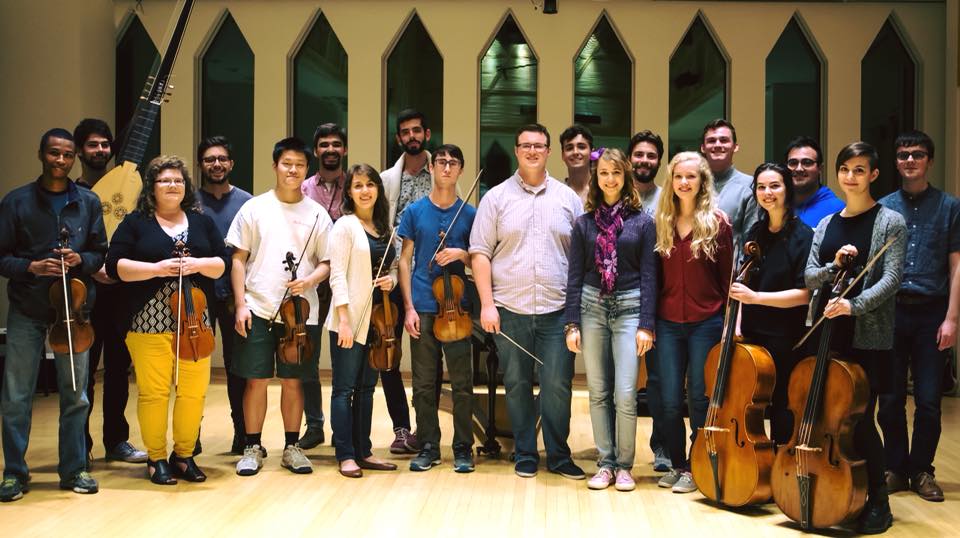by Daniel Hathaway

That initiative, inspired by the 500th Anniversary of the Lutheran Reformation, resulted in three performances last weekend in Oberlin and Cleveland. The first two were in concert format, but the third, on Sunday afternoon, November 5 at the Church of the Covenant, took the shape of a Reformation Sunday Vespers service during Bach’s time, complete with readings, prayers, congregational responses, and an attenuated sermon. Most of those elements were presented in the original German.
Bickett assembled a chorus of eight singers and a small orchestra of period instruments underpinned by a continuo section of cellos, bass, organ, harpsichord, and theorbo. The performing forces filled the rear gallery of the church where the 17th century-style Richards, Fowkes & Company organ stands and sings out mightily down the nave.
The 90-minute service began with carillon music played by George Leggiero, followed by Bach’s C-Major Prelude, BWV 545, and an introit (Pachelbel’s Gott ist unser Zuversicht), reflecting Leipzig’s practice of singing an old-style motet at the beginning of the service.
The Kyrie and Gloria of the Lutheran Mass followed — in plainsong settings and in music by Luther and Nikolaus Decius — preceded by a Bach organ prelude, Kyrie, Gott Vater in Ewigkeit, BWV 669.
The Collect, Epistle, and Gospel were read in German by the Rev. Susanne Carter, separated by the congregational hymn Ein feste Burg, elaborately accompanied by Covenant music director and Oberlin organ professor Jonathan Moyer. (An occasional E-Major chord on the meantone-tempered organ added astringency.)
Dietrich Buxtehude’s cantata Alles was ihr tut preceded the creed and the sermon, a selection of excerpts from Luther’s 1518 “Sermon on Indulgences and Grace,” delivered (helpfully in English) by the Rev. Ken Jones.
The main event of the afternoon, Bach’s cantata Ein feste Burg, BWV 80, received a festive performance by soloists and the four ripieno singers. The outstanding aria and recitative soloists were soprano Theodora Nestorova, countertenor Joe Schlesinger, tenor Ben Martin, and bass Matthew Payne, and oboist Eduardo Sepulveda took a fine obbligato turn on a rare instrument, the oboe da caccia.
The service ended in a way Bach’s might not have — with a Concerto of dance movements by Georg Muffat — but the ensemble played its Allemanda, Grave, Gavotta, and Menuet stylishly.
The service was richly documented in program notes by Albert Bellefeuille, who also served as rehearsal accompanist and keyboard continuo, providing extra insight into how Bach’s church cantatas fit into a larger liturgical context. That experience was rare and interesting, and the “congregation” gamely played their parts, even if phrases like “der mit dem Vater und dem Sohne zugleich angebetet und zugleich geehret wird, der durch die Propheten geredet hat” may have twisted English-speaking tongues.
Published on ClevelandClassical.com November 9, 2017.
Click here for a printable copy of this article



